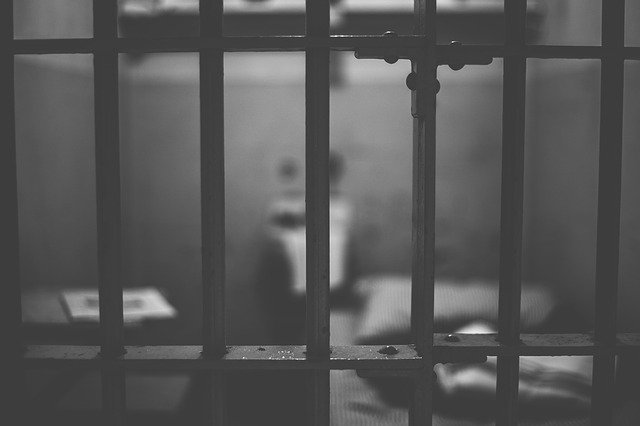LIFESTYLE
4 Things We Can Learn From Other Countries' Successful Handling Of COVID-19
The Malaysian government has done a pretty good job in handling the COVID-19 pandemic but since the Recovery Movement Control Order (RMCO) was introduced, Malaysians seem to have started to take things for granted and resumed pre-coronavirus lifestyle.
With 13 new clusters in the past few weeks and the number of new COVID-19 positive cases hitting double digits again, it's prudent to learn as much as possible from others who have managed to avoid a second wave of the pandemic.
Taiwan and New Zealand are among the countries that have been hailed for the way they handled the COVID-19 pandemic, as well as shutting the doors to the threat of a second wave.
However, none of those countries are safe from the virus entirely, just like the rest of the world, but so far they have managed to keep the numbers low once the curve was flattened.
Here are some of the things that the countries did right and hopefully, we can learn from.

1) Border control and forced quarantine

Wait. Don't we do this too, you ask? Sure, we do.
But the Taiwanese government started doing this early. As soon as the country learnt about an unusual type of pneumonia spreading in Wuhan, its government contacted the World Health Organisation (WHO) and other agencies to learn more about it.
The country became one of the first countries to start screening all passengers arriving to the country and seeking declaration of their medical condition - way before it became a pandemic. Their concern was valid considering the country's proximity to China.
By March, everyone entering the country were forced to go through a two-week quarantine. The government worked with telco companies to track the movements of those who are supposed to be home to ensure compliance. No heading to a kopitiam before reaching home here.

2) Clear messaging and working together

In New Zealand, the government, under the helm of Prime Minister Jacinda Ardern, also started closing the borders early and imposing a strict lockdown unlike what Malaysia did.
But they didn't stop at that. If you look at the country's COVID-19 website, you'd see a clear, comprehensive messaging not only about the disease itself but also about mental health, assistance for those facing domestic and sexual abuse and more.
There's even a sub-section on the website that explains to children about the coronavirus.
On top of that, Ardern went on FB Live often to speak to the public, and often said that the country was a team of five million fighting the disease.
While the government played a big role in fighting the disease, it's citizens played a part too.
_1.jpg)
3) Mask up - and make it mandatory!
_1.jpg)
We're not sure if this is an Asian thing, but Taiwan and Singapore are examples of countries that are using face masks to prevent the spread of the virus.
Even before the WHO started encouraging the use of masks and when many countries were still contemplating the move, Taiwan made the wearing of masks, especially in public transportation, compulsory.
The country stopped the export of masks temporarily to ensure enough supply for its citizens, reduced the prices of masks and limited the number of masks that can be purchased by a family. It even donated millions of masks to other countries once the virus was more contained within the country.
Fast forward a few months and much lesser cases later, the country is still imposing strict measure to keep the virus at bay.
In Singapore, those who venture out without their masks (except while exercising) will be fined SGD300 (RM924) for the first offence and SGD1,000 (RM3076) for subsequent offences. If still degil, they can be jailed.
In Taiwan, the fine for not wearing a mask on public transportation is NT$15,000 (RM2,175).
If you think that's excessive, Qatar fines its citizens 200,000 riyal (RM225,000).
Makes the possible RM1,000 fine that Malaysia imposes on those flaunting MCO rules seem small, doesn't it? Compared to Qatar, at least.

4) Strict enforcement

Judging by the fine imposed on those who don't wear their masks, we can already guess how much worse the penalty for going against other rules may be.
In New Zealand, those not following the law can be fined up to NZD4,000 (RM11,312) or jailed for up to six months.
As for Taiwan, the government uses what some call as "excessive survailance" using GPS tracking and such. Those found to flaunt the laws can be fined up to NT$1 million (RM144,665).
The amount can double if you take public transport but forget to wear a mask. The country also has a "quarantine prevention centre" where those who don't follow the rules are sent to.

We have to work with the government to keep COVID-19 at bay

We can all agree that Malaysia has done a pretty good job so far to handle the COVID-19 pandemic, but unfortunately, we are getting complacent.
More and more people have stopped following the avoiding the 3Cs (crowded places, confined spaces and close conversation) and practice the 3Ws (Wash, Wear Masks and Warn).
COVID-19 is here to stay until a vaccine is found.
Till then, both the government and we, the public have to continue to adjust to the "new normal" and continue to live like the virus is as big a threat as it was a few weeks ago.

